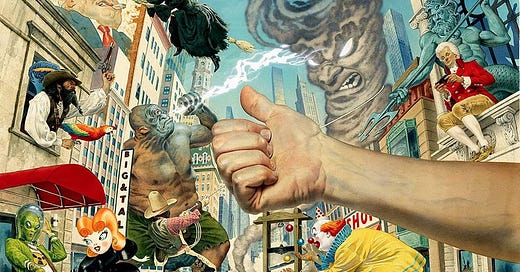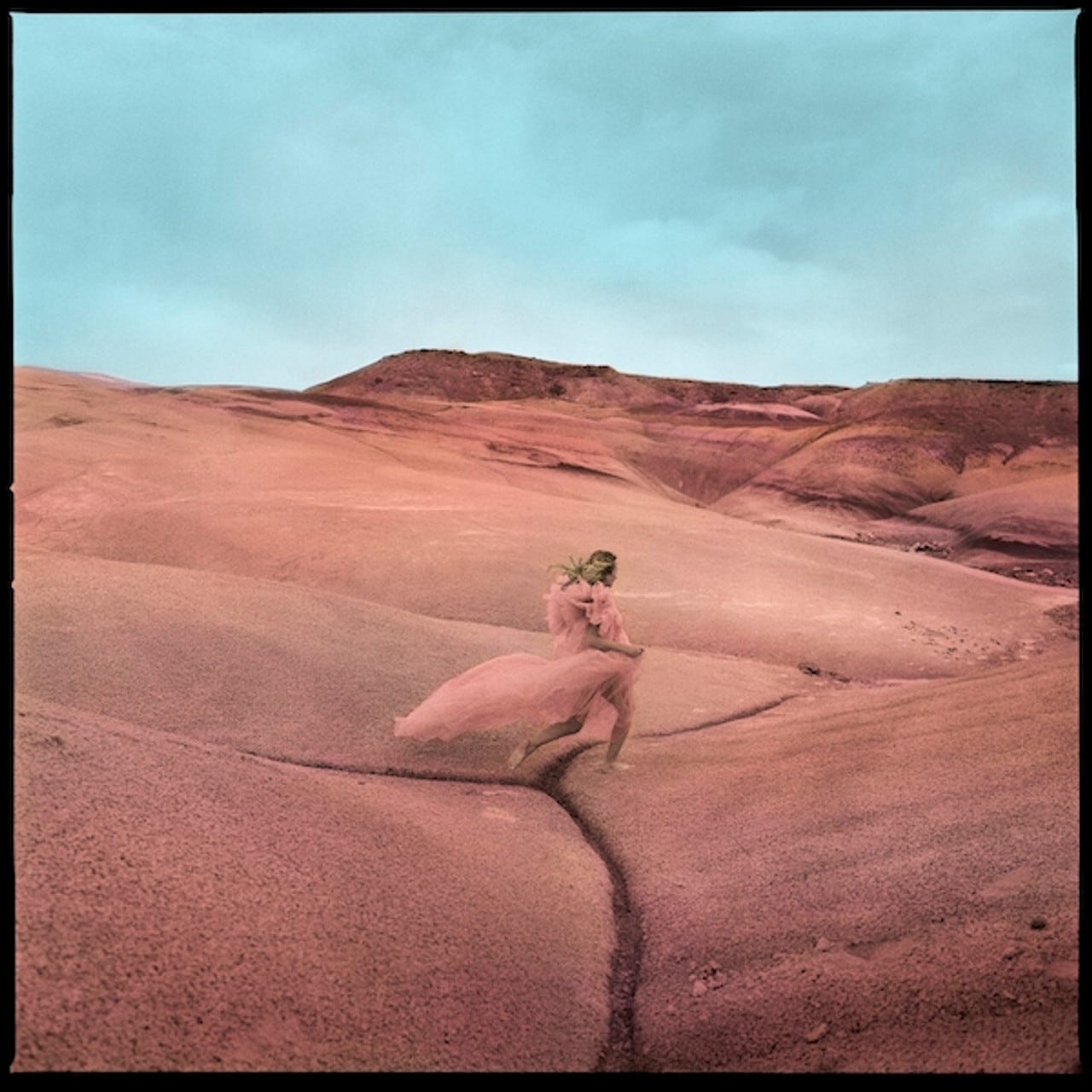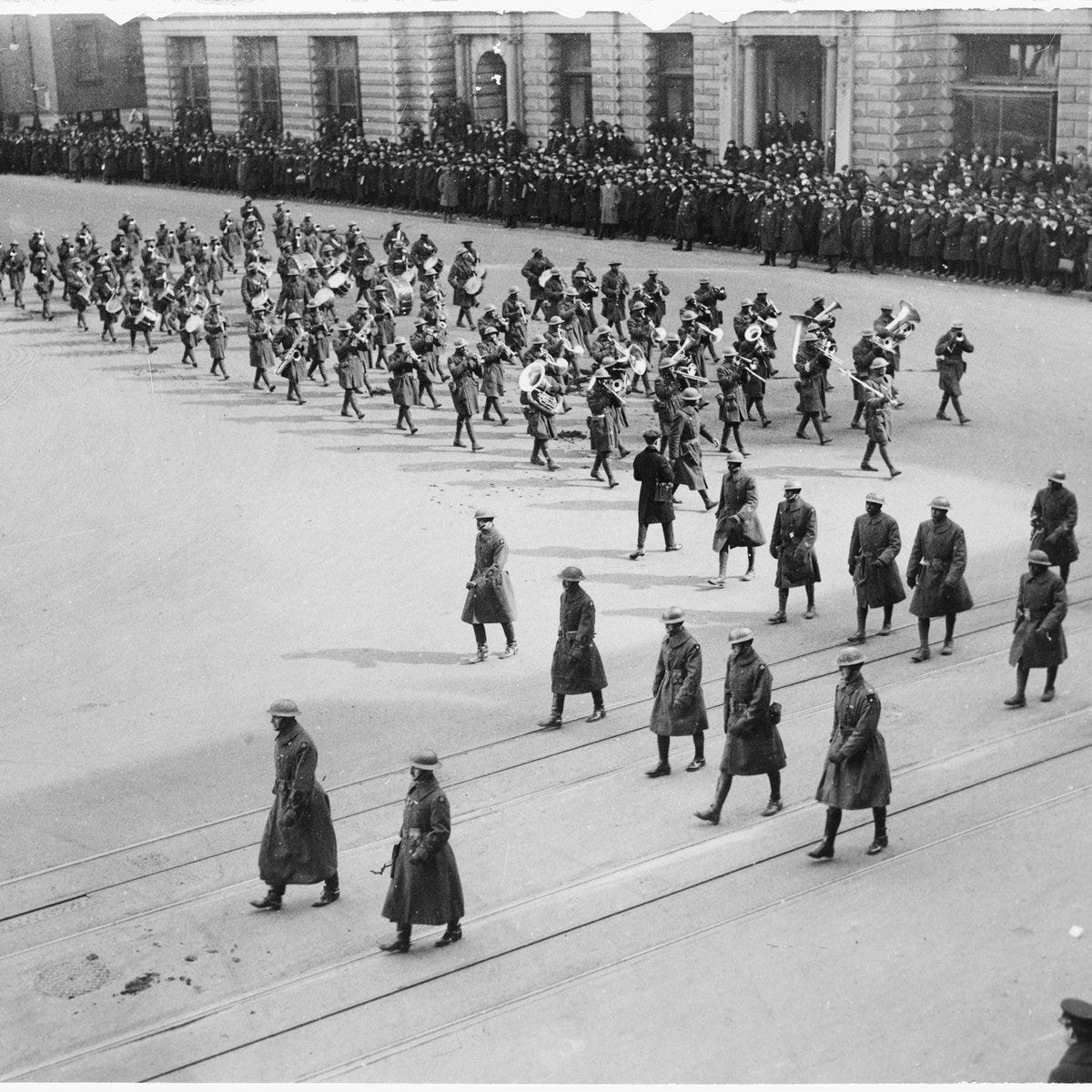Adventures in Listening, February 9 2023
White Reaper goes for pop-punk glory. Margo Price paints another self-portrait. And Jason Moran shares a forgotten history.
White Reaper - Asking for a Ride
I was talking with a college-age record store clerk the other day, and when I casually referenced my affection for the en vogue band Turnstile, he was visibly taken aback. (Apparently I give off strong “born during the Great Depression” vibes.) I’ll have to go back and really blow his mind by recommending White Reaper— a band that deserves to be championed by hip young record store clerks everywhere, if they’re not already. Asking for a Ride is the Louisville, KY group’s major label debut, and it’s just about everything I could ask for in a pop-punk record— which is to say, the songs are short, fast, and loud, resplendent with strong hooks. The lyrics are mostly nonsense, though there are some vague gestures toward blue collar concerns. (Representative titles: “Pink Slip”— sadly not a reference to Lindsay Lohan’s band in Freaky Friday— and “Getting into Trouble w/ the Boss.”) After an opening pair of songs that pummel and thrash— RIYL Turnstile!— the band breaks into some big pop singalongs that you can easily imagine translated into the boy band ecosystem, complete with dance routines. There are occasional synth flourishes, arena rock guitar moves, and fist-pumping power choruses. The first nine out of 10 songs maintain a vigorous rock and roll pace, the energy never flagging and the hooks never settling into homogeneity. Closing number “Pages” begins with pensive acoustic guitar strumming, truly the last thing you want to hear on an album like this, but within 40 seconds it’s back to loud guitars and singalong choruses. Total runtime: 29 minutes. Not for nothing: A great album cover! Get hip, kids. White Reaper is a blast.
Margo Price - Strays
You only get one chance to make an album like Midwest Farmer’s Daughter— an album that bends country music tropes in service to autobiography, outlining a lifetime of struggle and survival through masterful command of an established musical vernacular. It’s to Margo Price’s credit that she’s never really tried to make a part two, instead shifting into topical songwriting on American Made, then putting classic country in the rear view for That’s How Rumors Get Started. The best moments on Strays pick up where that album left off, capturing a similarly rakish classic-rock vibe, doubling down on chiming new wave and a healthy affection for Tom Petty. As Stephen Thomas Erlewine points out, this is a milieu of all-American styles that nimbly evades the “Americana” label, instead functioning as a kind of loving homage to the glory days of AOR radio. Working with a tight studio band, Price fills the album with great singing, writing, and playing, transmuting professionalism into visceral thrills: Listen to how confidently “Light Me Up” builds from a trot to a wind sprint, enlisting Heartbreaker Mike Campbell for forked-lightening guitar solos that summon a cathartic chorus. And though she’s no longer writing songs in an explicitly autobiographical mode, Price remains adept at self-mythology: In the swaggering opener “Been to the Mountain” she spits bars like a seasoned battle rapper— or like Dylan circa Blonde on Blonde— creating a self-portrait out of sheer braggadocio. It’s an album so full of color— from the desert noir of “Hell in the Heartland” to the candy-coated twinkle of “Time Machine”— that the final dozen minutes, devoted to a couple of long, writerly character studies, can feel a little dour by comparison. They’re both very good songs that I’m simply never going to play as often as I do, say, the wonderfully chintzy, trashy “Change of Heart.” But if Strays feels a bit like a raucous party that has to shut down for an early curfew, it’s totally persuasive as a testament to the many sides of Margo Price, celebrating her record-making skill and her restless spirit in equal measure.
Jason Moran - From the Dancehall to the Battlefield
Though he’s largely overlooked today, James Reese Europe was a towering figure in the development of early 20th century American music— and Black music, in particular. Born in 1881, he was an in-demand bandleader who formed his own orchestra and musician’s union, performed at Carnegie Hall, fought in World War I as one of the “Harlem Hellfighters,” and, in 1919, was killed backstage, stabbed to death by his own drummer.
The great pianist and composer Jason Moran explains all of this in the title track to his new James Reese Europe tribute album. “From the Dancehall to the Battlefield” is a rigorously-researched biographical sketch, narrated Ken Burns-style over pensive piano; it’s a very informative song that I’ll probably never play again. But the rest of the album? Immersive, inventive, and utterly delightful. Joined by an exceptional cast of supporting players, Moran enlivens some of Europe’s chestnuts— songs that mix ragtime, swing, and military marches— with songs that speak to the era’s musical milieu, notably an extended suite of W.C. Handy blues. Though it’s mostly played with a warm reverence for the source material, the music feels animated, elastic, and vigorous; there’s simply too much enthusiasm and verve for it to ever sound like a dusty old museum piece. (I’m reminded more than a little of Bug Music, Don Bryon’s salute to 1920s swing music, played with a similar joie de vivre.) The jubilant brass in “Darktown Stutter’s Ball” is as rousing as any J.P. Sousa anthem— the whistles and cartoon sound effects deepen, not distract from, its all-American fervor— and if much of the album occupies a similarly ebullient territory, the pervading good cheer is enriched by a few darker shadings: “Flee as a Bird to Your Mountain/Ghosts” descends into troubled cacophony, while Moran’s original “Drop (Tear)” is haunted and mournful.
It adds up to an incredibly deep, varied, irresistible album that sheds light on a forgotten forefather— and in doing so, attests to Moran’s giftedness as a musician, historian, visionary, and conceptual thinker. You’ll have to log into Bandcamp to hear it, but the music will handsomely reward your effort. While you’re there, check out some of Moran’s other excellent Bandcamp-only releases; I really like the edgier, experimental sounds on BANGS, made with the adventurous guitarist Mary Halvorson and late cornet master Ron Miles. Then, for a cool-down: The beautiful solo meditation The Sound Will Tell You.
Harry Styles - Harry’s House
“I’m not saying that this is any good. I’m saying that this will win. It’s mass appeal. It’s like what motels put up, and it hangs there for years, and no one ever throws acid at it… No stance. Absolutely no point of view whatsoever.”
- Mark Brendanawicz, Parks and Recreation, “The Camel”







